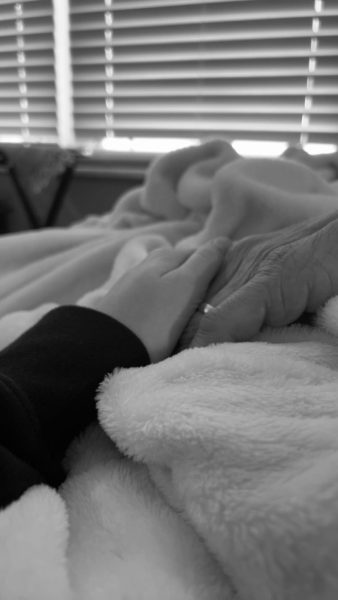Carrying Your Love With Me
A look into how grief is experienced over time

Grief is defined as “deep sorrow, especially that caused by someone’s death.” Although it has a definition, grief means something different for every person.
On July 16, 2018, my father passed away suddenly from a heart attack at 40 years old. As paramedics flooded my apartment and a police officer told me the fatal news, my knees buckled and I collapsed onto the pavement outside. I remember sobbing uncontrollably until my vision was blurry and I was light-headed. This was one of my earliest experiences with grief at 13 years old.
People always told me that it would get easier with time, which I never believed. Even after six months, the pain of losing my dad only became harder to bear. Now, almost two years later, I know that grief evolves as time goes on. In my case, eventually, my father’s death became easier to accept and deal with. But there are still those moments where I feel just as upset as I did the day he passed away.
Grief is experienced differently by every person. There are no rules for how long or how often you should grieve for your loss. However, what many people can agree on is that losing a loved one is a complicated and heartbreaking process that appears to last a lifetime.
How grief is felt varies by the day. It can be a constant feeling of sorrow or occasional reminders of your loss throughout the day. As bad as it may seem, some days I forget that my dad isn’t here anymore. This happens to me more often as time passes. Other days, I’ll be upset to the point that I don’t want to get out of bed.
If I had one piece of advice for anyone who has recently lost a loved one, it would be to talk to the people who love you and remind yourself that you’re not alone. When you talk about your loved one that you’ve lost, you’re keeping their love for you alive.
The main reason I can smile again after losing my dad is, that I received support from my closest friends and family. When my father first passed away, I didn’t open up to anybody about what I was feeling. As time went on, I got more comfortable talking about my emotions, and that’s when I started to heal. I found myself hanging out with friends and leaving the house, which are both things that I didn’t do for about seven months.
Opening up to people who wanted to listen and help me was the best decision I could have made. I wasn’t handling my thoughts and feelings alone anymore. If I had one piece of advice for anyone who has recently lost a loved one, it would be to talk to the people who love you and remind yourself that you’re not alone. When you talk about your loved one that you’ve lost, you’re keeping their love for you alive.
My father was a great man who dedicated his life to providing for his family. All of the love he held for me continues to persist every day. My dad isn’t here with me now, but he lives on in my heart, and I know that I will carry his love with me for the rest of my life.















Brooke Huffman | Jan 22, 2020 at 6:53 am
Absolutely incredible story, your writing is always phenomenal and this piece is no exception. I loved this story so much!